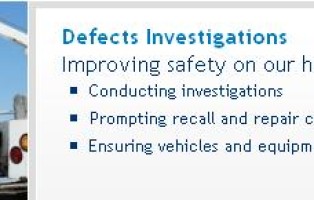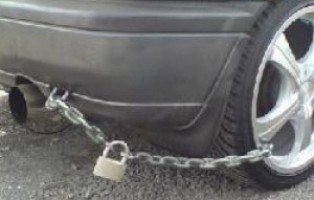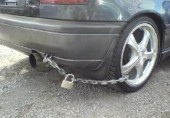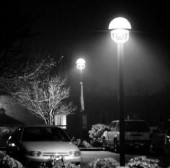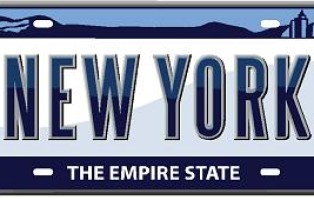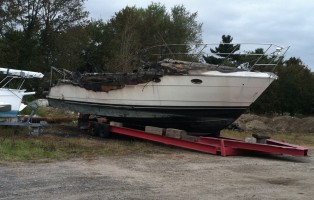Tag Archives:Insurance
2012 Another Big Year for Car Recalls
In 2012, many car manufacturers had to recall many of their most popular models, somewhat unwillingly, after prodding from the National Highway Traffic Safety Administration (NHTSA).
This year Ford started the year by recalling 450,426 minivans and SUVs for mechanical issues. More recently they recalled their 2013 Escape when problems with the fuel lines came up once more. A recall was also issued for their 2001-2004 Escape (nearly 500,000) for faulty wiring in the cruise control and a sticky accelerator stick.
Toyota, last year’s winner for highest number of recalls, lived up to its reputation this year. Its first recall, for safety issues, started out at 681,500 vehicles in North America. Their next recall was for 778,000 RAV4’s and Lexus models for problems with their rear suspension. And most recently, and the company’s largest recall in 16 years, Toyota recalled 7.5 million cars because of door fires that the NHTSA has been looking into.
General Motors recalled 426,000 midsized sedans for automatic transmission troubles. They also recalled 4,700 2013 Chevrolet Sonics for a signal light electrical problem their engineers detected while cooking up a new computer program for the function. More recently GM is recalling 41,000 cars and crossovers to correct a fuel leak, but only in a handful of hot-weather states. Nissan is also recalling approximately 2,400 of its trucks and SUVs from its 2012 models because the front wheel hub might break away.
Chrysler’s Jeep Liberty has a recall of nearly 350,000 units earlier this year. The NHTSA has also been investigating their car models for engine fires and rear wheel lock ups.
Honda has been plagued by recalls recently that call into question their reputation for quality. The first recall they had this year is for 600,000 Accords for faulty hoses. They also announced a recall for 820,000 Civics and Pilots because of the possibility of for headlight failure. Even more recently Honda has recalled many of their 2002-2006 CR-Vs for a fire risk.
If you receive a recall notice for your vehicle, or you hear about one in the media and you think it is for your car or truck, be sure to contact the manufacturer. Defects could prove to be dangerous to you, your passengers, and others on the road. Be safe!
Posted: Cynthia
Categories: Car Insurance, Cars, Connecticut, Insurance, New York, New York Insurance, Uncategorized
Keeping Your Car Safe from Thieves
A car is stolen in the US every 43 seconds. Professional thieves can break into and then drive away with your car in less than two minutes. About 240 per 100,000 registered motorists will be a victim of auto theft in the course of a year. Keeping your vehicle safe is everyone’s responsibility. The police, government officials, insurers, vehicle manufacturers and other citizens work together in a cooperative effort to prevent auto theft and fraud, and there are a number of easy steps you can take to protect your property as well.
Some of these steps are simple, while others require a little more effort. For starters, never leave your car running while unattended. Always turn off the engine and roll up the windows, even when leaving your car for a short time. Do not leave your keys in the car! Nearly 20% of cars stolen still have the keys in the ignition. Using removable or hidden radios, stereos and CD players is good idea for protecting your audio system (as well as discrete placement of speakers). To lessen the chance of thieves seeing your car as an easy mark, keep your valuables hidden, as well as not leaving your GPS out on your dashboard. Parking in well lit and busy areas is another way to deter thieves. Locking your car and garage can be another factor in keeping your property safe.
- This definitely makes a point.
- A Bit Much
- Park in well-lit Areas
Another idea is to cover your garage windows, thus keeping prying eyes from seeing your vehicles and other valuables. This can also make it more difficult to see if you are or are not home. Installing and having alarm systems and anti-theft devices (such as ignition cut-off switches, fuel cut-off devices, steering wheel locks and hood locks) slows a thief down and decreases the chance of theft. Many insurers offer a discount, ranging from 5% to 25%, on comprehensive coverage to policy holders who have these equipped. Making your car easy to identify by either etching your car’s VIN onto the windows and under the hood and trunk lid of your car, or by using a dye or electric marker (you can sometimes borrow markers from your local police department or rent from a hardware store) can be very helpful if your vehicle is stolen. There are lists available of the most frequently stolen vehicles that you can check before you purchase a car as well.
It is also important to keep your documents safe by never leaving your vehicles title in your car’s glove compartment. Yes, if you are stopped, the police officer will ask you for license and registration, so you need to keep the registration in the car when you are driving. But thieves can use this information to sell your car or to impersonate you if they are stopped by the police. So it is important to keep a copy of your car’s VIN, license plate number, insurance identification and vehicle registration in safe place as well. If your vehicle is stolen you will need the information to complete police and insurance reports.
All of this may seem like a lot of extra effort. But compared to the aggravation of having your car or property stolen, it’s well worth the trouble.
Avalon Agency Insurance Pound Ridge, NY All Lines of Insurance for New York, Connecticut and New Jersey 800-676-4921
Posted: Cynthia
Categories: Car Insurance, Cars, Connecticut, Insurance, Motorcycle Insurance, New York, New York Insurance, Personal Insurance, Pound Ridge NY, Uncategorized
There are over 314 million people living in the United States and they own over 9 million motorcycles. According to the Insurance Information Institute Inc., there were over 4,500 fatalities in 2010, despite a 16% decrease in motorcycle sales. In 2009, speeding accounted for 35% of all of the motorcycle fatalities that year, compared to 23% for cars. And helmet use in 2009 went from 67% of riders to 54% in 2010 resulting in nearly half of the fatalities resulting from not wearing them.
What causes most motorcycle accidents? The most frequent cause is the inability of vehicular motorists to see motorcyclists. Motorcycles are smaller than cars and drivers tend to look for other cars, not bikes. As a result, estimating the distance and oncoming speed becomes more difficult. Those who primarily or only driver cars are also not used to the driving patterns of motorcyclists and so this also becomes harder to judge.
Over 40% of all motorcycle accidents occur at intersections when a car driver is making a left turn in front of a motorcycle. Another common scenario is when a driver is making a left turn on a 4 lane road and the car in the closest oncoming lane stops but the motorcycle in the oncoming far curb lane decides to run the yellow light. Other common situations are when an oncoming driver rear ends a motorcycle or if the motorcyclist runs into the back end of a vehicle.
Another thing to keep in mind is the blind spot. Cyclists riding alongside a lane of cars may be out of the view of the drivers. This could lead to an unsuspecting driver colliding with the motorcycle as they try to change lanes.
Other conditions that can affect a motorcycle rider far more than a car driver are road obstructions such as potholes, fallen tree limbs or railroad tracks. An icy or wet road or a road with sand on it can also present a perilous situation for riders. Then there’s wind conditions as well as larger vehicles such as vans or trucks that can block a rider’s view or view of the rider from other motorists.
Riding a motorcycle is a lot of fun and the freedom of the open road is very inviting. But you need to be safe and aware out there. Take a class and get a motorcycle license, to begin with. Wear a helmet! Check out some of the helpful videos on Youtube.com, like those from this group.
Be safe and have fun! And call us for Motorcycle Insurance! Avalon Agency New York Connecticut 800-676-4921
Posted: Cynthia
Categories: Cars, Connecticut, Insurance, Motorcycle Insurance, New York, New York Insurance, Summer
No NY Insurance? No NY License Plates. It's that simple.
We’ve had a couple of our customers in the last week get caught up because of this rule. Both recently moved out of state and we did our best to explain to them that you cannot have New York State license plates unless you have at least the minimum New York State liability insurance coverage for the registration attached to those plates.
I was asked by one customer how the average New Yorker would know this information if they are not told by their insurance representative (something we do regularly, and did do in both of these situations). Unfortunately, it’s hard to answer that question without seeming unfeeling or rude. But the answer is simply that, having registered the vehicle in the state, you are required to be aware of the rules, someone else telling you not withstanding. I am subject to them myself.
I would say we explain this to someone at least 10 times in any given week. The response is always the same. It’s black and white. No insurance, no plates. Keep the plates and cancel the insurance and you get fined and a suspension letter from DMV for your license and that registration.
In the two instances I refer to, both customers moved out of state. We told them AND emailed them what needed to be done. We can’t come to their homes and take the plates from them forcibly. They chose, instead to keep the NY plates, but wrote insurance coverage in their new states of residence. The first asked us to cancel her policy which we did, at her earnest request, only now to find out she held onto her plates and now she has the nasty DMV Suspension letter. The fact that she HAS now turned in her plates should render the situation moot and clear it up, but it’s no fun to receive that letter. The second wrote coverage in the new state, but the current NYS coverage is still in force. So having not turned in their plates, they is still paying for two policies. Nobody wants to do that either. Now those plates need to be mailed back to New York and, once that is done, the coverage can be canceled.
Here’s a link to the New York State DMV page explaining what you need to do about your license plates.
We at our agency are going to look for a way to make sure our insureds are even more informed on this subject in the future. Even though we feel we do a good job of explaining the issue, we still end up being the ones blamed in the end. I think it’s the result of an unpleasant societal shift of blame by a majority of the populace. Perhaps we will add a new notice to be given to all of our customers, regardless of the status of their auto coverage. We will come up with something, I’m sure of that. In the meantime, remember: No insurance, No plates. Plates & No Insurance? Nasty notice or overpaying.
Happy Halloween (almost!)
Avalon Agency Window
We’re looking forward to Halloween! Here in town, children come and trick-or-treat at the local businesses. We bought over 2000 Dum Dum lollipops and can’t wait to greet all the witches and super heroes that come to our door.
Posted: Cynthia
Categories: Cars, Connecticut, Home Insurance, Insurance, New York Insurance, NY Business Insurance, Personal Insurance
Tips for Saving your Water Damaged Items
Hurricane Irene and her tropcial storm chasers ran through the northeast recently, leaving a lot of damage in their wake.
Check out these tips from FEMA about how to salvage water-damaged photos and other items.
Here’s another handy link, with info on salvaging your clothing items.
From what we hear, FEMA is offering low interest loans to those who have flood damage and whose insurance is not covering that damage. If you need to file a claim, go to their web site at www.fema.gov and fill out the application. You may need to file a claim with your insurance company and obtain a declination of coverage as well.
Row, row, row your Boat Insurance
When you think about Boat Insurance, what’s the first type of loss that comes to mind?
Sinking, of course. And this happens, probably more often than people realize. I was once told by an Ocean Marine guy at one of my companies that one cargo ship goes down, on average, every day somewhere in the world. I also have a close friend whose 28 foot Thompson sank AT THE DOCK. And this occurred because of a faulty .75 cent hose clamp.
The sea is a wild and wooly place. In February of 2010, a friend from our local firehouse was on board the S.V. Concordia when a sudden vertical wind blast capsized this beautiful ship. Luckily all those on board survived, but not before having to spend 40 hours in life boats. Click the picture for the story. It’s quite the tale.
After the recent hurricane blew through our area, we happened to head down to Calf Pasture Beach in Norwalk, Connecticut in search of a car show. The show had been cancelled, but we did get some pictures of these boats, on land, that had suffered from some other perils that many boat owners might not take into consideration.


Pretty obvious. This is a total loss by fire here. Boat fires can happen on land or on the water. We can’t know where this one occurred.
I think the wind got hold of this sailboat, and not in the positive, life affirming way its owner was planning on.
We’ve insured some of our customers boats for many years, with no incident. However, some of the claims we have seen include a dinghy floating out to sea, a $150,000 boat washed away by a storm and found later on the shoreline of an island, and something as simple as a sea tow.
These crafts often are a big investment, financially. They can also be a very important part of a lifestyle and the source of much enjoyment for their owners. When things go awry, I want to be able to tell someone they are covered. Hey, that’s what I do. I insure boats. 🙂

